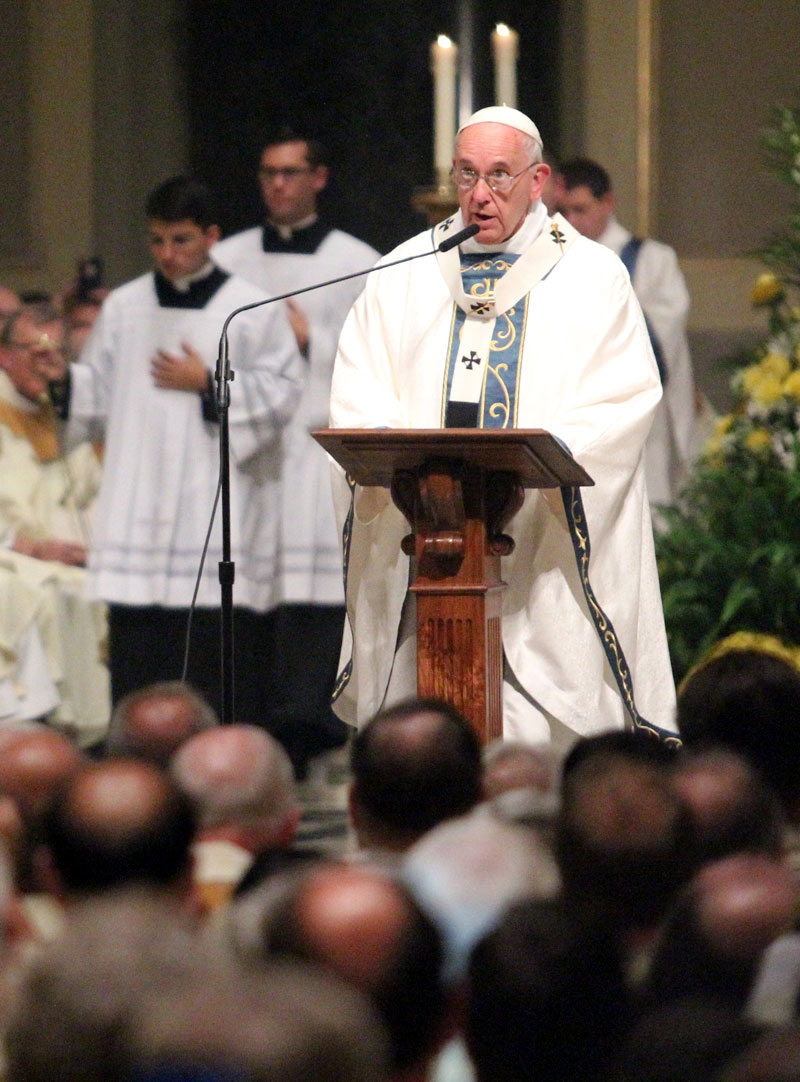Pope Francis has become a beacon of hope and inspiration for millions around the globe. Through his sermons, he addresses not only matters of faith but also issues affecting humanity as a whole. His messages often carry profound insights that resonate with people from all walks of life. Whether discussing social justice, environmental stewardship, or personal spirituality, Pope Francis's words challenge us to reflect on our roles within the broader community.
In his teachings, Pope Francis emphasizes simplicity and clarity, ensuring that his messages reach as many hearts as possible. This approach is evident in his guidance regarding homilies—urging brevity and focus to maintain engagement and understanding among listeners. By advocating for concise yet impactful sermons, he highlights the importance of effective communication in spiritual leadership. Let's delve deeper into some key aspects of Pope Francis's approach to preaching and its implications.
Under the guidance of Pope Francis, the essence of a sermon transcends mere delivery; it becomes an instrument of change and action. He insists that sermons must encapsulate an idea, evoke emotion, and inspire commitment. Furthermore, he strongly advocates for limiting the duration of homilies to no more than ten minutes. This emphasis on brevity ensures that the core message remains clear and memorable, fostering a more engaged audience.
The Art of Brevity: Crafting Impactful Messages
Pope Francis’s insistence on keeping homilies under ten minutes stems from his understanding of human attention spans and the need for clarity. In today’s fast-paced world, where distractions abound, maintaining focus during lengthy speeches can be challenging. By urging priests to condense their sermons, he aims to enhance comprehension and retention among congregants. Shorter homilies allow listeners to grasp essential concepts without feeling overwhelmed by excessive detail.
This approach aligns with modern communication strategies that prioritize conciseness and relevance. When sermons are brief yet potent, they leave a lasting impression, encouraging individuals to reflect deeply on the presented ideas. Moreover, such sermons serve as catalysts for action, prompting believers to translate spiritual teachings into practical deeds.
Beyond practical considerations, the principle of brevity reflects a respect for the listener’s time and intellect. It acknowledges that meaningful connections can occur even in limited interactions, provided those moments are crafted thoughtfully. Thus, Pope Francis’s directive serves as a reminder that quality often outweighs quantity when communicating important truths.
Clarity and Focus: The Pillars of Effective Preaching
In addition to emphasizing brevity, Pope Francis underscores the significance of clarity and focus in sermons. A well-structured homily should convey one central idea rather than attempting to cover multiple topics superficially. This focused approach enables preachers to delve deeper into specific themes, offering richer insights and fostering greater understanding among listeners.
By concentrating on a single theme, sermons gain coherence and direction, making them easier to follow and remember. Such structure allows preachers to build upon key points systematically, creating a logical flow that captivates the audience’s attention. Additionally, focusing on one idea enhances the likelihood of resonating with individual experiences, thereby strengthening the connection between the preacher and the congregation.
Pope Francis’s advice encourages preachers to prioritize substance over style, ensuring that their words genuinely impact lives. When sermons are both clear and focused, they empower listeners to engage actively with the message, transforming passive hearing into active participation in the faith journey.
A Call to Action: Bridging Faith and Practice
Central to Pope Francis’s vision for sermons is their ability to inspire action. Beyond imparting knowledge or stirring emotions, effective sermons should motivate individuals to apply spiritual principles in daily life. This transformative aspect lies at the heart of his teachings, urging believers to embody their faith through concrete actions.
By framing sermons as calls to action, Pope Francis challenges congregations to move beyond passive receptivity toward proactive engagement. This shift emphasizes the importance of living out one’s beliefs, whether through acts of kindness, advocacy for justice, or care for creation. Such an approach reinforces the interconnectedness of faith and practice, highlighting how religious teachings can shape ethical behavior.
Ultimately, Pope Francis’s emphasis on actionable sermons reflects his commitment to fostering a dynamic relationship between spirituality and reality. Through his guidance, he invites believers to view sermons not merely as intellectual exercises but as blueprints for meaningful contributions to society. In doing so, he inspires a hopeful world grounded in compassion, solidarity, and purposeful living.

